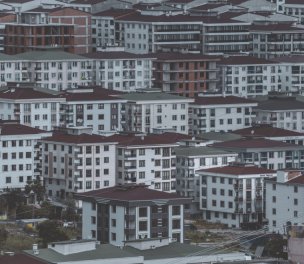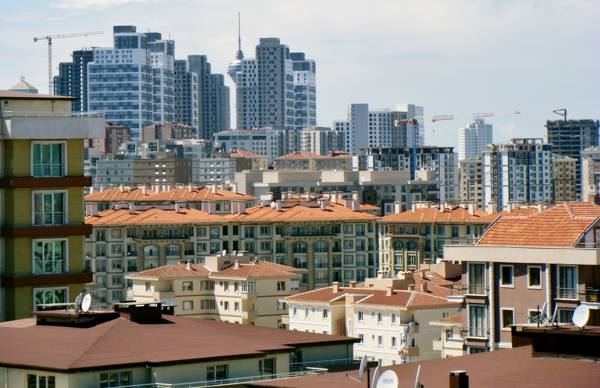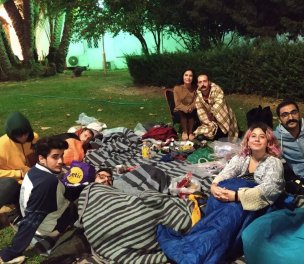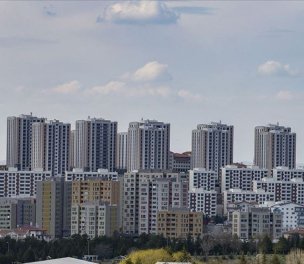"Usurpers of housing right"
Click to read the article in Turkish
The United Nations (UN), in a decision in 1985, designated the first Monday of October every year as World Habitat Day.
The idea is to reflect on the state of towns and cities and the basic right of all to adequate shelter. It is also intended to remind the world of its collective responsibility for the future of the human habitat.
The aim of the World Habitat Day, which is officially recognized in Turkey, is also to remind local governments and the public in general of how urgent a problem is to offer better living conditions for human beings.
The protests of "We cannot find housing" held by university students in Turkey against high rents and expensive dorm fees since September 20 have manifested the dimension of the housing crisis in Turkey.
Turkey ranks first in rising housing prices, rents
According to Eurostat, the statistical office of the European Union (EU), Turkey is the country which has seen the highest increase in housing prices and rents in Europe over the past year. While the housing prices increased by 6.1 percent in Europe on average in the first period of 2021 when compared to the previous period, this rate was 32 percent in Turkey.
When the years of 2020 and 2021 are compared across the EU, the Eurostat figures show that the rents saw an average increase of 1.2 percent in the EU countries and this rate was 9.4 percent in Turkey.
Record-high increase in 3 metropolitan cities
According to a study conducted by the Bahçeşehir University Economic and Social Research Center (BETAM), the housing prices per square meter saw a considerable increase in the three biggest cities of Turkey in August. While the rate of increase was 50.7 percent in İstanbul, the housing prices increased by 31.8 percent in Ankara and by 30.9 percent in İzmir.
Rate of living in one's own dwelling falling
According to the Income and Living Conditions Survey results of the state agency Turkish Statistical Institute (TurkStat), the proportion of the people living in their own dwellings dropped in 2020.
In 2020, the proportion of the population living in their own dwellings fell by 1 point compared to the previous year, it was calculated as 57.8 percent. The share of those living in rented house was 26.2 percent, the share of those living in lodging was 1.2 percent and the share of those who did not pay rent despite not living in their own dwellings was 14.7 percent.
According to the 2020 results, 36.7 percent of the non-institutional population had heating problems due to isolation.
This ratio was calculated 34.7 percent for the population faced with problems in their dwellings such as leaking roof, damp walls/floors/foundation, rot in window frames/floors and 22.6 percent for population with pollution, grime due to traffic/industry or other environmental problems.
58.3 percent of the population had installments or loans (other than mortgage -for the main dwelling- and housing cost), 12.8 points less than last year. While these payments supposedly did not burden 7 percent of the population, it was a heavy burden to 18.8 percent.
59.3 percent of the households reported that they cannot afford paying for one week annual holiday away from home, 37.3 percent cannot afford a meal with meat, chicken or fish every second day, 32.2 percent cannot afford unexpected financial expenses, 20.3 percent cannot afford keeping home adequately warm and 58 percent cannot afford replacing worn furniture.
Over 88 percent increase in building permits
According to the TurkStat statistics on "Building Permits, January-June, 2021", in the first six months of 2021, the number of buildings, floor area of buildings, value of buildings and number of dwelling units increased by 88.4 percent, 45.3 percent, 93.7 percent and 49.8 percent in a year according to the construction permits given by municipalities to the buildings.
Total floor area of buildings for which construction permits were given was 65.4 million m²; while 38.5 million m² of it was residential building, 14.4 million m² of it was non-residential building and 12.5 million m² of it was common used area in the first six months of 2021.
This year's theme: A carbon-free world
Underlining that cities are responsible for nearly 70 percent of transportation, buildings, energy and waste management, which account for a large part of greenhouse gas emissions, and for global carbon emissions, the UN has set "a carbon-free world" as the theme of this year's World Habitat Day. (KÖ/SD)









as.jpg)




